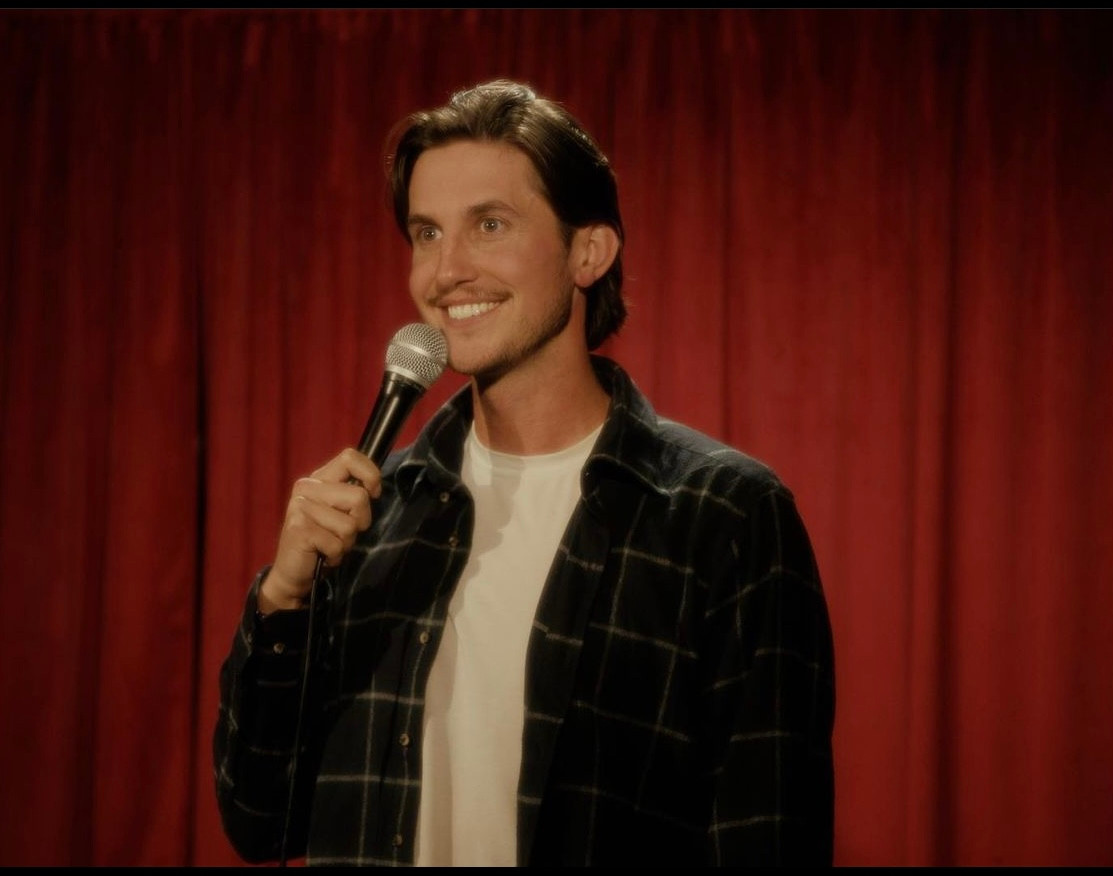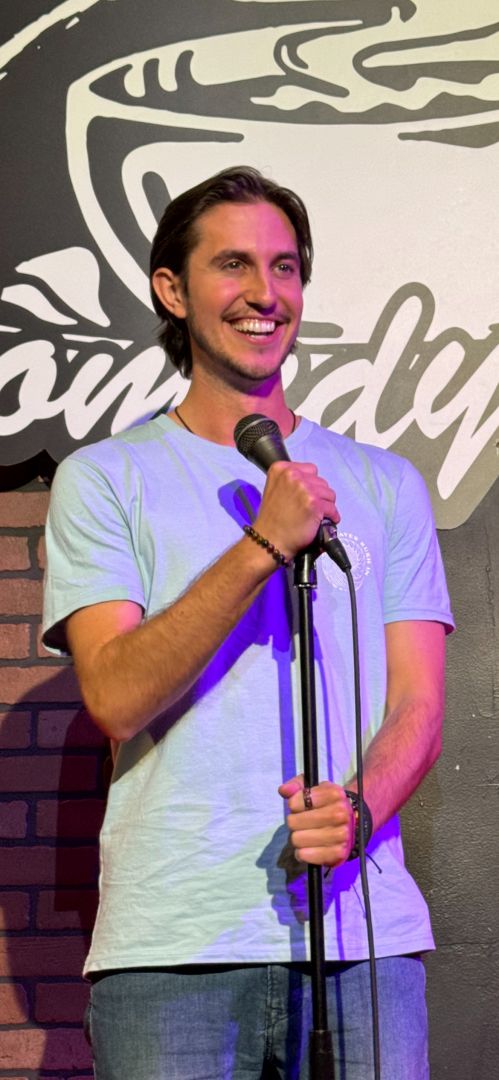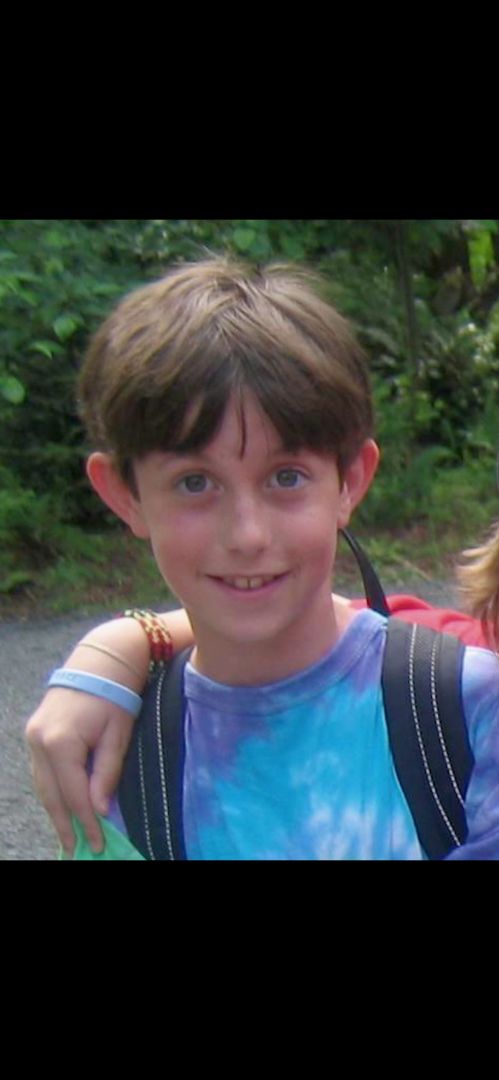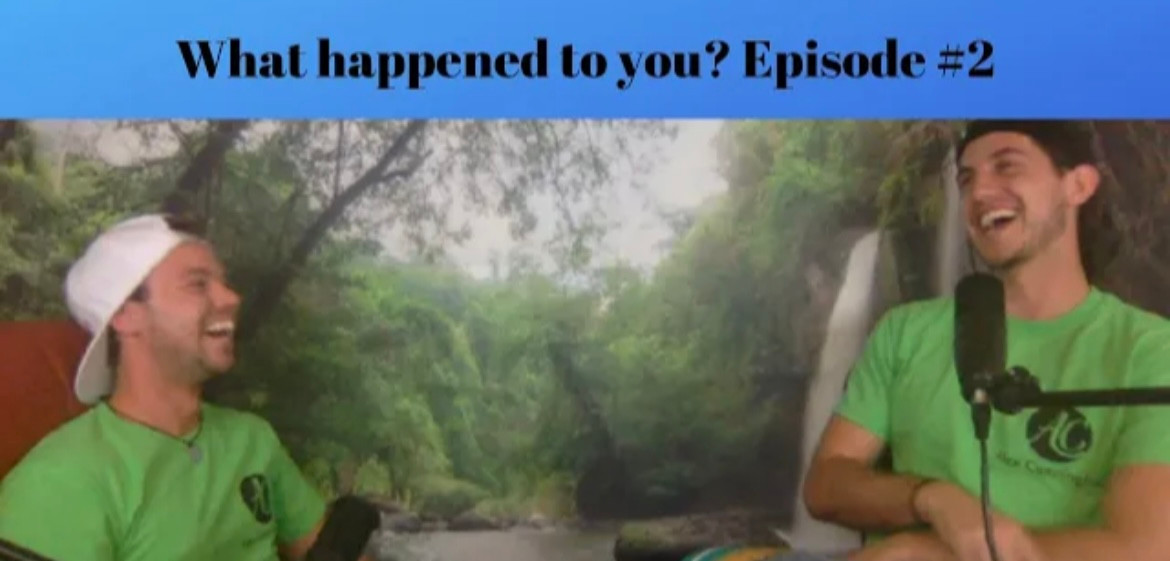Meet Sebastian Scales | Comedian, Podcaster & Nonprofit Founder

We had the good fortune of connecting with Sebastian Scales and we’ve shared our conversation below.
Hi Sebastian, can you talk to us a bit about the social impact of your business?
I started ‘What Happened To You Foundation’ – a non-profit dedicated to normalizing conversations about trauma – because of my experiences doing stand-up comedy about being molested as a child. Often when I do this material, people will come up to me after shows and tell me that they were molested too, along with many other types of trauma. I began connecting with people I had just met on a level that felt like we had known each other forever.
Despite the heavy topics, the conversations are light. People are often smiling and laughing when they tell me what happened to them.
Part of why it can be hard to talk about trauma is because of how it makes the people you’re telling feel. It can feel like you’re burdening them with your burdens. Laughter is an immense tension alleviator.
As Wayne Dyer said, “It is impossible to laugh and be afraid at the same time”.
These conversations led me to start the podcast ‘What happened to you?’ where people share their stories, and we laugh about what’s happened to us.
This shift in perspective makes conversations about trauma easier to have, and talking about trauma is a huge step in the healing process. It is also our best defense against trauma like child molestation. Child molestation relies on secrecy and suppression in order to continue. And these are global issues that have been going on for centuries, in large part because of how difficult they are to talk about.
The easier we make it to have these conversations, the easier it is to heal.
Alright, so let’s move onto what keeps you busy professionally?
I started doing stand-up comedy in 2017. To this day I’m not quite sure why. It was just a feeling that I followed. The first set I ever did was at an open mic in New York City, with about 9 people in the crowd. I did material about being molested as a kid, and it was way more chill than testifying in court in front of the guy who molested me, which I had to do when I was 11.
I blacked out sober, but I remember getting a few laughs, and after the set I was overcome with emotion. It felt like I had found a way to talk about what happened to me that made me feel okay. Telling people you were molested and having them laugh, for me, was so much better having them feel sorry for you.
After that first set, I bombed for like 4 months straight. I still do. All good though, that’s just part of stand up.
I remember when I first started figuring out how to make the molestation material funny. The level of laughter was directly correlated to my level of honesty. The more honest I was about the experience and my thought process at the time, the funnier it became. Which was also caused a big shift in my approach to healing – I stopped trying to convince people (and myself) that I was okay, which I had been doing since the trauma happened, and began allowing myself to feel how I really felt, mostly through emotions that I had suppressed. As I processed these emotions, I came more and more into the present, and really every part of my life intensified positively. It’s an ongoing thing, but every time I allow myself to feel something I’ve buried, it feels like I come more into contact with who I really am, and what’s happening now.
Anyway, I kept doing stand up. The emotional processing drastically impacted my stage presence and material. Generally, the audience feels how you feel. So the better I felt and the more I allowed myself to process and heal, the better the sets went. After shows people would come up to me and tell me about their trauma, and we would laugh about our experiences. It always felt like a relief. A relief to be able to share stories that are normally so hard to share. Stories that can be scary to share. It felt like a whole new way to move through life.
These conversations led me to start the podcast ‘What happened to you?’, with the goal of normalizing conversations about trauma using humor. The first guest I had on was a comic named Alex Cunningham who I met after a show, who told me both of his parents killed themselves when he was 8 and 12. It was an epic conversation.
It quickly became clear that the impact of laughing about trauma was not restricted to people who had been molested. It was all types of trauma. Which is awesome. It’s so cool to have an approach that helps release the guilt and shame associated with sharing these stories. And ultimately, laughter opens the door into deeper conversations.
Since then, I’ve been posting podcast episodes and videos online, which led me to start What Happened To You Foundation – a nonprofit dedicated to providing resources for trauma victims, and mitigating the court process for survivors of abuse.
In addition to stand up and podcasting, EMDR therapy, meditation, and psychedelics, have played instrumental roles in my (ongoing) healing journey.
If you had a friend visiting you, what are some of the local spots you’d want to take them around to?
I’d start off with a hike at Solstice Canyon in Malibu. It’s my favorite hike in LA, the views are incredible. Stop by Malibu seafood after the hike for some fish. Head back to Venice and walk around the Canals, and then sit on the beach, watch the sunset, and chat about life and how we got to earth.
Shoutout is all about shouting out others who you feel deserve additional recognition and exposure. Who would you like to shoutout?
My parents have been my biggest supporters throughout my life. It was amazing how much love they met me with when I told them I had been molested. They stood by me the whole time. And that really gave me the courage to continue speaking about it. They showed me that I would still be loved no matter what had happened to me, which was a big fear of mine during the molestation. I genuinely don’t know where I’d be without them, and I’m so happy with where I am with them. I’d also like to shout out everyone who has shared their stories with me over the years. These conversations, on the podcast and everywhere else, make me feel lighter, more connected with the world and myself, and make the trauma I experienced feel purposeful.
Website: whtyfoundation.org
Instagram: https://www.instagram.com/sebastianscales/
Linkedin: https://www.linkedin.com/in/sebastianscales/
Youtube: https://www.youtube.com/c/sebastianscales
Other: Tiktok: https://www.tiktok.com/@sebastianscales
